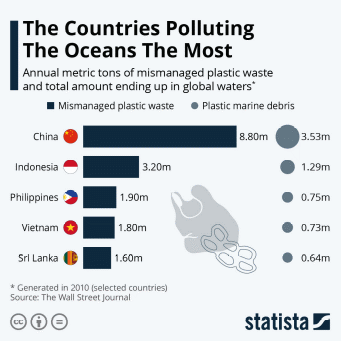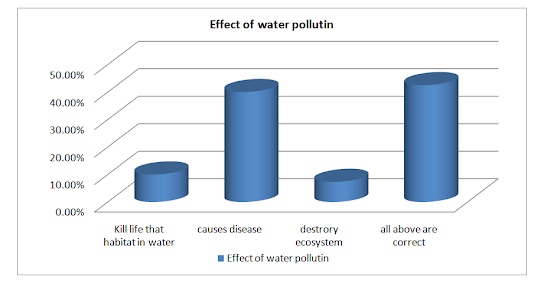Introduction
Global anthropogenic activities, manifested in industrial and agricultural initiatives and innovative technological solutions, have become one of the main causes of massive water pollution. This topic has been discussed by ecologists and other stakeholders for decades, and every year, the issue is raised more and more acutely. Large reservoirs turn into landfills, which is detrimental not only for living organisms living in them but also for people who consume polluted water. The purpose of this work is to describe the effects of water pollution on human health from the perspective of existing findings on this topic and the assessment of available information. The research questions are as follows:
- Who is responsible for water pollution and endangering lives?
- What are the real health risks associated with water pollution?
- What measures can be taken to reduce the deleterious effects of the issue?
While taking these questions into account, one can conduct an assessment of current resources to identify specific trends and potential steps that reputable global agencies and other sources suggest. A literature review is a handy tool to present relevant findings and evaluate the spectrum of the problem. Water pollution is a severe issue for humanity, and some countries need to take urgent measures to stop the contamination process and implement projects to help people affected by the consumption of polluted water.
Literature Review
One of the main water pollution causes is the tons of unrefined plastic that ends up in the water. This process is often uncontrolled, and despite the efforts of authorities and environmental organizations, many countries are unable to reduce the amount of harmful plastic in their water. The primary data, provided by Statista and shown in Figure 1, is valuable information reflecting the performance of those countries that pollute the water the most (“The countries polluting the oceans the most,” 2020). The focus is on plastic as a major contaminant in the oceans. While evaluating this graph, one can conclude that the countries of the southeast, particularly China, should take urgent measures to reduce the proportion of unrefined plastic. The problem in this region may be caused by the high population density and high industrial activities. Nevertheless, no factors are included in the list of adequate causes of pollution, which explains the relevance of targeted work in this direction.

The question related to real risks to human health is widely discussed in different resources. The United States Environmental Protection Agency (2021) proposes to draw attention to the list of problems that the consumption of polluted water is fraught with numerous health issues. This leads to neurological effects, skin problems, respiratory diseases, stomach illnesses, as well as the poisoning of the body with nitrates (United States Environmental Protection Agency, 2021).
In addition to this list of common problems, Ighalo et al. (2020) mention even more severe health problems. The consumption of poor-quality water contaminated with chemicals or unprocessed waste can lead to cardiovascular disease, diabetes, hypertension, black foot disease, and some other dangerous ailments, according to the researchers (Ighalo et al., 2020). These issues are discussed both from a regional and a global perspective, which is an incentive for different countries to implement effective projects to prevent water pollution.
Discussing health effects is not only a research topic but also a problem analyzed by individual world agencies. For instance, by reviewing the primary data from an interview with Francesca Racioppi, one can gain valuable insight from the head of the European Centre for Environment and Health (European Environment Agency, 2021). According to the respondent, “every day seven people, mostly children, die from diarrhoeal-related diseases” (European Environment Agency, 2021, para. 1). Such statistics stimulate fighting against uncontrolled water pollution to eliminate negative consequences for human health.
The damage to health from the problem in question is often considered in conjunction with other manifestations of the issue of water pollution. However, according to the statistics offered by Ladu et al. (2018), in comparison with other problems, threats to people are significantly more dangerous. In Figure 2, the corresponding ratios of such effects are presented, which show that harm to human health is a more severe problem than harm to the ecosystem (Ladu et al., 2018). This complements the importance of working towards eliminating the harmful impacts of water pollution, although, from the standpoint of comprehensive work, all the negative consequences need addressing.

While discussing the measures to take to combat this problem, one can pay attention to the steps offered by Parker (2021), which relate to reducing not only industrial and but also uncontrolled agricultural activities. The author notes the importance of reducing the proportion of toxic fertilizers that enter the soil and penetrate groundwater that subsequently enters the seas and oceans (Parker, 2021). Controlling aquatic flora can also be a potentially critical solution.
As Parker (2021) argues, some types of algae pollute water bodies and stimulate the growth of harmful bacteria. At the same time, this is crucial to assess all the prospects for such interventions to prevent the situation from deteriorating due to the destruction of beneficial plants that filter water. Therefore, decisions on possible targeted work should be implemented at different levels, including both global initiatives from international agencies and local projects.
Personal Research
Research Methods
The work to identify the real causes and effects of water pollution should be carried out through interaction with ordinary citizens. The best approach is a qualitative method based on the phenomenological principle when the experience of the involved participants is the object of analysis. This type of work involves compiling questionnaires about the personal experiences of the study members and their feedback on negative health effects. As a sampling method, a selective principle will be applied to obtain valid data. The information on the contaminated areas will be studied, and adult citizens living in these territories for a long period will be interviewed.
This will help assess the real impact of water pollution and obtain objective feedback from the stakeholders involved. As a data collection tool, questionnaires may be a convenient way of assessing the experience of the study members and enabling them to express a personal vision of the problem. The topic of the influence of pollution types will be raised, and an emphasis will be made not only on industrial but also on agricultural activities.
Discussion
The comparison of the information received from the participants can help identify specific views on the most significant causes of water pollution but not just health consequences. Despite the confirmed negative effects of industrial activities, the assessment of the impact of agricultural projects on water pollution and, therefore, on human health has not been adequately researched. According to Mateo-Sagasta et al. (2017), a high concentration of nitrates, which is found in vegetables and fruits that are not processed in accordance with sanitary standards, has a negative impact on health from infancy.
The researchers also assess the impact of agricultural activities on ecosystems and argue that biodiversity in polluted areas is lower than in those with clean water (Mateo-Sagasta et al., 2017). Thus, addressing pollution from agricultural activities can be as important as combating the industrial dumping of waste into seas and oceans.
Conclusion
Despite shared responsibility for the quality of the planet’s water, individual countries are to take a particular interest in addressing the issue of uncontrolled pollution and, therefore, reducing its effects on human health. The proposed research questions are addressed by using current academic resources and statistical findings. The research can relate to the analysis of real experiences by using a qualitative approach and assessing not only industrial but also agricultural factors that affect water quality.
References
The countries polluting the oceans the most. (2020). Statista. Web.
European Environment Agency. (2021). Interview – Addressing environmental risks to health. Web.
Ighalo, J. O., Adeniyi, A. G., Adeniran, J. A., & Ogunniyi, S. (2020). A systematic literature analysis of the nature and regional distribution of water pollution sources in Nigeria. Journal of Cleaner Production, 283, 124566. Web.
Ladu, J. L. C., Athiba, A. L., Lako, S. T. V., & Alfred, M. L. (2018). Investigation on the impact of water pollution on human health in Juba County, Republic of South Sudan. Journal of Environment Pollution and Human Health, 6(3), 89-95. Web.
Mateo-Sagasta, J., Zadeh, S. M., & Turral, H. (2017). Water pollution from agriculture: A global review – Executive summary. Food and Agriculture Organization of the United Nations.
Parker, L. (2021). Pollution and overuse threaten Florida’s fragile freshwater springs. National Geographic. Web.
United States Environmental Protection Agency. (2021). The effects: Human health. Web.